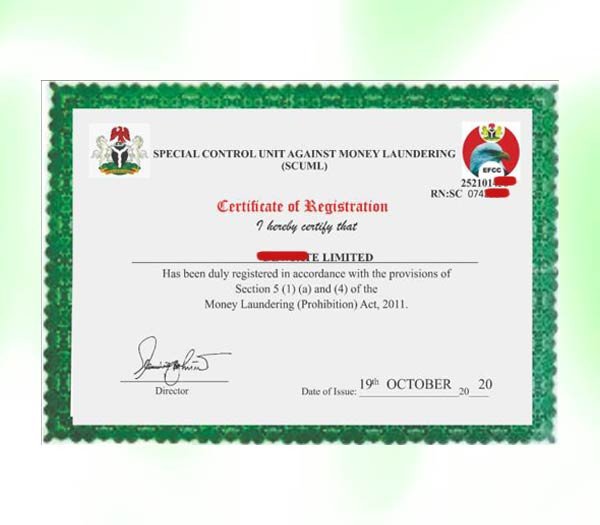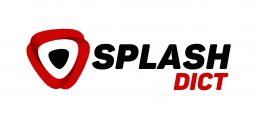The Special Control Unit Against Money Laundering (SCUML) is a specialized Nigerian regulatory unit under the EFCC, responsible for monitoring businesses vulnerable to money laundering and terrorist financing.
Whether you're running a real estate firm, NGO, audit practice, or jewelry business, understanding SCUML and getting certified is not optional. It's a legal requirement that protects your business and boosts your credibility with banks, regulators, and partners.
A Comprehensive Guide to the Special Control Unit Against Money Laundering (SCUML) in Nigeria
This guide provides a comprehensive overview of SCUML's mandate, history, and functions.
The Establishment of SCUML
The establishment of SCUML was a direct response to international pressure. In 2001, the Financial Action Task Force (FATF) placed Nigeria on its list of Non-Cooperative Countries and Territories (NCCTs) due to a business environment perceived to be a "safe-haven" for money laundering.
In response, the Federal Government of Nigeria formed a Presidential Inter-Agency Committee in 2003 to address these deficiencies. This led to the passage of the amended Money Laundering (Prohibition) Act of 2004, which for the first time legally defined Designated Non-Financial Institutions (DNFIs). Following the implementation of a national strategy, Nigeria was successfully removed from the FATF's NCCT list in June 2006.
The Special Control Unit Against Money Laundering (SCUML) was officially established in September 2005 by the Federal Executive Council of Nigeria. It was initially a specialized unit of the Federal Ministry of Commerce and Industry before its functions were later transferred to the Economic and Financial Crimes Commission (EFCC).
Who are Designated Non-Financial Institutions (DNFIs)?
The law defines DNFIs as a range of businesses and professions that are considered vulnerable to being used for money laundering and terrorist financing. SCUML is also empowered to classify additional businesses as DNFIs as needed.
According to the provided document, DNFIs include:
- Dealers in jewelleries, cars, and luxury goods
- Chartered/professional accountants
- Audit firms
- Tax consultants
- Clearing and settlement companies
- Legal practitioners
- Supermarkets
- Casinos
- Hotels
- Estate surveyors and valuers
- Precious stones and metals dealers
- Trust and company service providers
- Pool betting operators
- Non-governmental organisations (NGOs).
SCUML's Core Objectives and Obligations
For an effective AML/CFT framework, SCUML is charged with several key objectives:
- Registration and Certification: Registering and certifying all DNFIs in Nigeria.
- Inspections: Conducting on-site, off-site, and spot-check inspections of DNFIs.
- Supervision: Monitoring, supervising, and regulating the activities of DNFIs.
- Fighting Financial Crimes: Serving as a structure for combating economic and financial crimes within the DNFI sector.
- Database Management: Providing a database on DNFIs and their financial transactions.
- Criminal Investigations: Adding value to criminal investigations by providing data related to money trails.
- Reporting: Collecting, evaluating, and escalating Currency Transaction Reports (CTRs) to Suspicious Transaction Reports (STRs) for transmission to the EFCC/NFIU.
- Collaboration: Working with other national and international institutions involved in AML/CFT.
- Public Awareness: Creating public awareness through training workshops, seminars, and conferences for DNFIs.
SCUML Strategies and Challenges
SCUML has developed various strategies to fulfill its mandate, including:
- Categorizing DNFIs using a risk-based approach.
- Conducting routine AML/CFT compliance inspections.
- Holding seminars and workshops for DNFIs.
- Creating sensitization and awareness campaigns via electronic and print media.
- Building capacity within the DNFI sector for AML/CFT.
- Establishing operational offices across the country.
- Publishing and distributing guidelines and manuals.
- Establishing a DNFI Advisory Council.
However, SCUML also faces significant challenges, categorized as operational and environmental:
Operational Challenges:
- Sectoral differences within the large DNFI sector.
- Lack of computerization and data management culture within many DNFIs.
- Inadequacy in the quality and quantity of manpower.
- Security imperatives of compliance enforcement.
Environmental Challenges:
- A predominantly cash-based environment.
- The novelty of AML/CFT culture in the country.
- The informality of the sector.
- Issues with public cooperation, illiteracy, and poor record-keeping.
- Outright non-compliance and displacement.
Why SCUML Matters for Your Business
Since its establishment, SCUML's level of activity has grown, as demonstrated by the increase in registered DNFIs and the number of Currency Transaction Reports (CTRs) and Suspicious Transaction Reports (STRs) submitted. The unit has been instrumental in sensitizing DNFIs to the dangers of money laundering and providing critical information to relevant authorities.
While SCUML has made a significant start in introducing a compliance regime, the document concludes that there is still much more work to be done. The effective and efficient implementation of the AML/CFT regime requires the sustained cooperation and support of all national and international stakeholders to ensure long-term success.
This article is based on information from a document produced by the DFID Nigeria’s Security, Justice and Growth (SJG) programme, which concluded in 2010.
Ready to obtain your SCUML Certificate?
Although SCUML registration itself is free, SplashDict offers a professional facilitation service to ensure your documents are accurately prepared, submitted, and approved without delays or rejections. Here's how our team of compliance experts can help:
- Filing & Documentation: We handle all filings and required documentation for SCUML registration with the EFCC.
- Official Confirmation: Receive your SCUML Registration Certificate upon approval.
- Transparent Pricing: Our service fee covers professional facilitation; SCUML registration itself is free.
- Fast Processing: Completed within 2 to 14 working days, depending on EFCC approval.
- Secure Document Access: Your documents are securely stored online and can be accessed free of charge at any time.
- Ongoing Support: Get expert help from our Chartered Secretary and compliance team for all regulatory needs.














